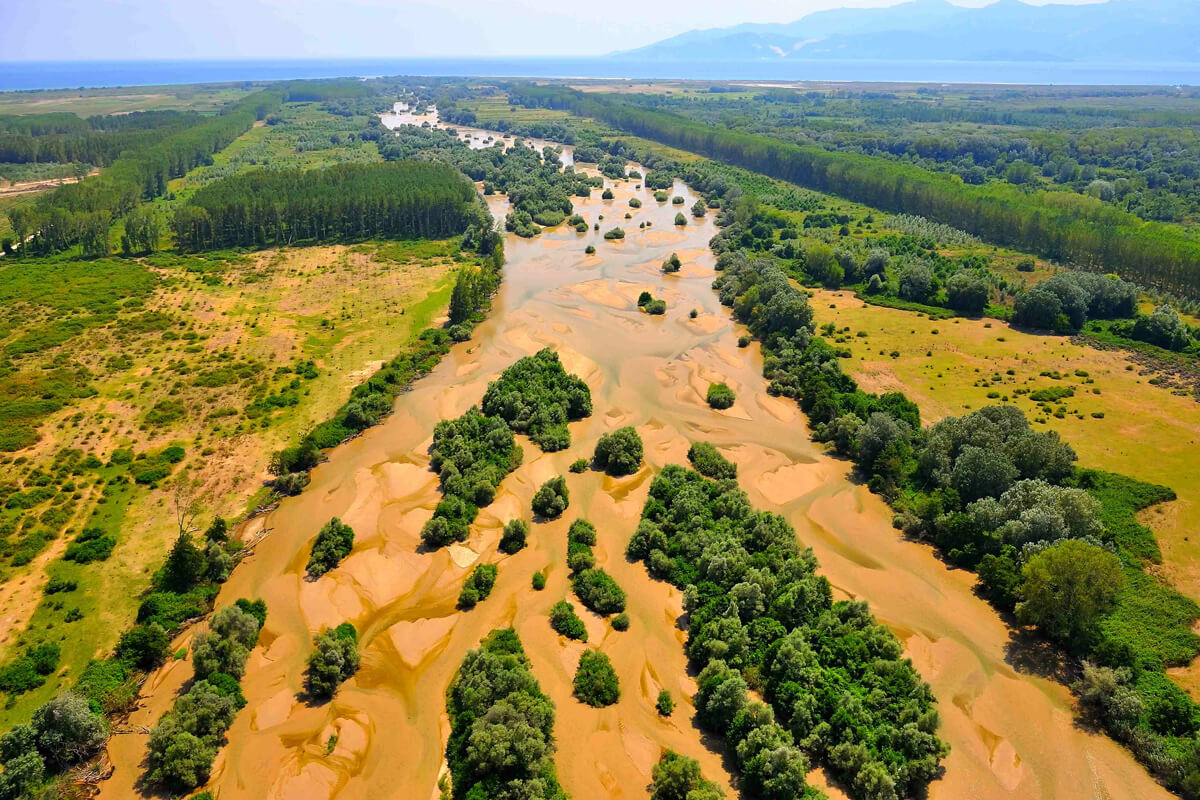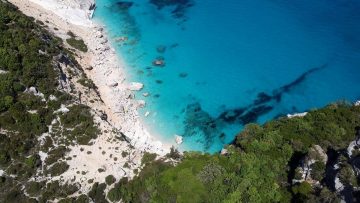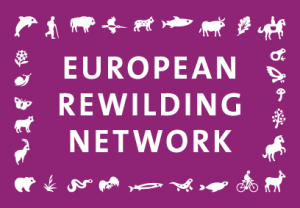Rewilding Europe is delighted to welcome the LIFE PRIMED project to the European Rewilding Network. With rewilding sites in both Italy and Greece, the project is working to develop and scale up innovative environmental engineering solutions and promote community engagement and nature-based tourism. This addition takes the number of network members to 66 (including Rewilding Europe’s eight operational areas), distributed right across Europe.

With the title “Restoration, management and valorisation of PRIority habitats of MEDiterranean coastal areas”, the EU-funded LIFE PRIMED project is focused on the rewilding and restoration of the Palo Laziale wood in central Italy, and the delta of the Nestos River in Greece – both of these are Natura 2000 sites.
LIFE PRIMED Project Manager Vito Emanuele Cambria is excited to be joining the ERN. “We look forward to sharing expertise with a wide range of members,” he says. “We want to work together to develop shared approaches to environmental challenges, and to exchange information and insight with European biodiversity professionals.”
The LIFE PRIMED project is overseen by the Hellenic Society for the Protection of the Nature (HSPN), the Sapienza University of Rome’s Department of Environmental Biology and other partners. It aims to identify the reasons behind the current unfavourable conservation status of the two sites, and to work to restore degraded ecosystems.
Over the last 20 years Palo Laziale has experienced rapid forest decline and dieback. The final stage of the tree dying process is characterised by a fungal infection, which is triggered by conditions such as drought, increased temperature due to climate change, increased salinity and a lack of forest management. In Nestos, the degradation is due to drought linked to climate change, illegal logging, fragmentation, overgrazing and trampling.

The project’s proposed forestry and hydraulic interventions – which include drainage trenches, underground tanks and gravity-powered water distribution network – represent the best solution to deal with drought and will have a substantial impact on the entire floodplain forest and temporary pond ecosystem.
“This innovative solution will have a very low environmental impact,” says LIFE PRIMED’s Cambria. “The functioning of the hydraulic system is based on gravity, and remotely controlled by an automated meteorological unit. This is a good example of climate change adaptation and mitigation. After 30 years, project ecosystems are expected to have reached a state of balance that will require little human intervention.”
The solutions developed as part of the project will then be used in other environmental contexts to enable the long-term conservation of habitats along the Mediterranean coast.
“We are targeting the eventual replication of this system in other regions and countries,” says Cambria.
Project members will present their work to the scientific community and other relevant institutions with the aim of scaling up the rewilding, restoration and valorisation of other similar European coastal ecosystems. It will support the development of the local and regional economy through community engagement and the development of nature-based tourism. To achieve this, the project team will focus on communications and raising awareness of the areas, their habitats and species through outreach and environmental education.
Scaling up rewilding
 Rewilding Europe is part of a burgeoning pan-European rewilding movement which has seen many impressive and inspiring initiatives develop over recent years. With rewilding-related projects continuing to multiply and flourish across the continent, the objective of the ERN is to connect, support and strengthen them.
Rewilding Europe is part of a burgeoning pan-European rewilding movement which has seen many impressive and inspiring initiatives develop over recent years. With rewilding-related projects continuing to multiply and flourish across the continent, the objective of the ERN is to connect, support and strengthen them.
The ERN has displayed impressive growth since its launch at the WILD10, the World Wilderness Congress in Salamanca in October 2013. It operates on a stronger together philosophy, promoting rewilding as a conservation approach. Members meet regularly – usually via webinar – to share knowledge, insight and examples of best practice.
Rewilding Europe extends a warm welcome to all rewilding initiatives and encourages them to apply for membership of the ERN. Please view this page for more information on application.
